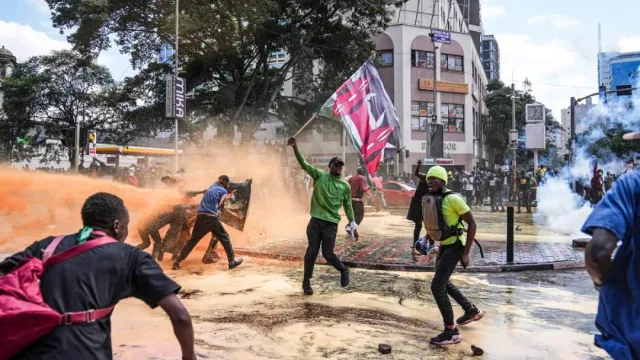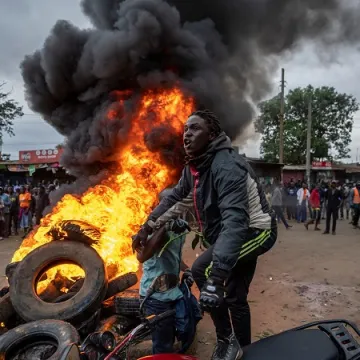Stung by raging revolt, MPs back Bill to tame protests

Members of Parliament on the committee largely supported the proposal, calling it both "timely" and necessary in light of the violent turn protests have taken in recent weeks.
In the wake of widespread demonstrations that have rocked the country in recent weeks, members of parliament have thrown their weight behind a new legislative proposal aimed at regulating public protests, especially those staged near key government installations.
The proposed law, sponsored by Nairobi Woman Representative Esther Passaris, seeks to create boundaries for protest zones and limit public gatherings within close proximity to institutions such as Parliament, courtrooms, and other protected areas under the Protected Areas Act.
Appearing before the Administration and Internal Security Committee on Tuesday, Passaris defended her Bill, saying it would establish order during protests and potentially save lives.
"The whole idea of the Bill is to protect the pillars of our democracy. You have to have a certain area where you can’t reach as a demonstrator and you have to respect that," she said.
The Bill proposes a 100-metre exclusion zone around Parliament and protected areas, beyond which demonstrations would not be allowed. It also aims to develop structured guidelines on how and where protests should be conducted.
While protests are protected under Kenya’s Constitution, the recent wave of unrest—driven largely by youth-led opposition to controversial tax measures and governance issues—has sparked debate on whether existing laws adequately balance freedom of expression with public safety.
Members of Parliament on the committee largely supported the proposal, calling it both "timely" and necessary in light of the violent turn protests have taken in recent weeks.
"The country is at a crossroads, we must take lessons. As much as citizens have a right to picket, it must be done in an orderly manner," said committee chair Gabriel Tong’oyo.
Echoing the sentiment, Mandera East MP Hussein Weytan warned of the risks posed by unregulated protests near national institutions. "Nobody is safe. Anytime people can come to Parliament, go to State House, go to police stations," he said.
Homa Bay Town MP Peter Kaluma also voiced support, but urged refinement of the Bill to avoid ambiguity around constitutionally protected rights.
"It is very objective, it is very timely... this thing should be redrafted to specify its intentions specifically to limit the rights in a very conclusive way," he said.
"That law should also define what matters we should assemble, do you need to petition? For instance, what we were dealing with last Wednesday—they wanted compensation for the children we lost last year during the demonstrations. Is that a matter of petition in court or a matter of demonstration?"
Teso North MP Oku Kaunya offered a more nuanced take, recommending the Bill allow for controlled access into protected areas for protest leaders delivering petitions.
Passaris noted that her proposal is different from the Assembly and Demonstration Bill, 2024, introduced by former MP and current Public Service Cabinet Secretary Geoffrey Ruku. That Bill had drawn intense backlash from civil society, human rights organizations, and even the police watchdog bodies over concerns it would criminalize public dissent.
“Ruku’s Bill focused on the individual conduct during demonstrations, while mine speaks to ‘cleaning up the environment’ of the demonstrations,” Passaris said.
The Bill comes amid a national reckoning on the limits of lawful assembly, especially as recent anti-government protests have been met with lethal force, leading to deaths, property destruction and serious human rights concerns.
Though the Bill has yet to be tabled for a full parliamentary debate, its early endorsement by the Internal Security Committee suggests growing political will to reframe how protests are conducted—an effort critics may interpret as an attempt to curtail freedom of assembly under the guise of security.
Still, the supporters argue that clearer rules could foster safer civic engagement, especially in a tense political climate where public anger often boils over into unrest.





